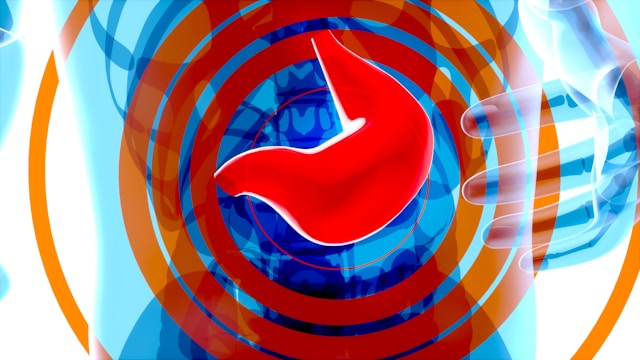Former ABC News anchor Elizabeth Vargas covered the 9/11 attacks on America, the invasion of Iraq, and the Amanda Knox trial. While appearing poised and professional on television, she was desperately trying to control her panic attacks. She did what many women do when they suffer from relentless anxiety—she self-medicated with alcohol. Vargas’s memoir, Between Breaths, opens with the assertion, “I don’t know if I was born an alcoholic, but I was definitely born anxious.” As a child, she feared her father, an officer in the U.S. Army, would fall in Vietnam. Young Elizabeth responded to his deployment with “daily, full-blown panic, a tsunami of anxiety.” The father did not die in Vietnam. But as the military family moved from country to country, Elizabeth learned to hide her fear because “it was something weak and shameful.” She never talked about her panic with anyone.
Her mother didn’t know “how to comfort her,” and “with each move, to each new school on each new army base, she prayed that she could conquer her worries and insecurity, and reinvent herself,” Vargas remembers in her memoir. It didn’t work, and Elizabeth was regularly bullied at school, which only made the anxiety worse. Her coping mechanism at that age was literature. “I learned to run from my anxiety by losing myself in the imaginary world of books,” she writes. In high school in Heidelberg, Germany, she discovered a different, dangerous way of coping. “The local gasthauses did not check our IDs and were happy to serve teenagers beer and wine and apple schnapps.” Vargas eventually became a TV journalist. After her broadcast debut at a Missouri station, she quickly rose to the top of a profession that requires a flawless outward appearance under intense pressure. Not exactly ideal for people suffering from panic attacks. To all outward appearances, Vargas was an effective and dedicated journalist but in reality, the “very slow and very gradual” slide into “problem drinking” had begun. That slide was briefly slowed by marriage and motherhood. In 2002, Vargas married singer-songwriter Marc Cohn, and for the first time in her life she felt safe. In January 2003, her son Zachary was born. Vargas’ career was going well. After the death of Peter Jennings, she was chosen to co-anchor ABC’s flagship news program, World News Tonight, but the anxiety was ever present.
Despite her success, Vargas was plagued by self-doubt and began to “slip back into a nightly glass of wine.” Her husband began to notice her alcohol misuse and asked her to cut back which she found “hard, very hard.” After the birth of her second son Samuel, the difficulties begin to pile up. She lost her news anchor job and her marriage started to show strains. Vargas’ “lifelong habit of running from whatever made her anxious or hurt was beginning to backfire.” As the addiction was beginning to spin out of control, the crises began to recur at even shorter intervals. After her first critical episode of binge drinking in 2009, Vargas was hospitalized. Despite all the warning signs, denial won out and she spent the next two years “on a campaign of mostly controlled drinking, sprinkled with bouts of sobriety and a handful of terrifying binges.” Only much later would she realize that “the biggest problem was that she still did not believe she was an alcoholic.” In the end, it took several stays in residential rehab and other treatment before Elizabeth Vargas would really embark on the path of recovery. Her marriage to Marc Cohn did not survive her substance use disorder, as Marc became increasingly frustrated with her continued drinking and inability to care for their children. Vargas initially did not see a PTSD specialist as recommended by therapists in her first rehab, so her trauma and anxiety issues remained mostly untreated. In many ways, Vargas’ story of “pain and addiction” is typical for a woman with an addiction disorder. From a young age, she suffered from trauma and anxiety disorder, a deep sense of shame about it and the inability to seek help. Vargas’ story also illustrates how these issues are often ignored in addiction treatment. One of the rehab centers she attended is described as a “grim place with linoleum floors and fluorescent lights.” She saw a therapist only once a week and otherwise felt like a captive.
Unsurprisingly, Vargas relapsed soon after returning home. A modern approach to addiction treatment looks very different. The new Women’s Center at Lakeview Health uses a comprehensive approach to providing patient care. The integrative health model at The Rose of Lakeview looks at the medical, psychological, physical, and spiritual aspects of women’s recovery in a gender-separate environment. Because trauma and abuse are so prevalent among women with substance use disorders, Lakeview Health employs a trauma-informed approach to addiction recovery. Trauma contributes to addiction, and helping women address trauma, depression and anxiety should be an important component of treating their addiction. Elizabeth Vargas concludes her recovery story with the insight that “nearly every addict I know drank or took drugs because there was something else bigger that felt wrong, that hurt so much, it was unbearable. Numbing that ‘something else’ became the only way to survive. We were, many of us, tormented souls who needed to find our way, however possible, to a place of grace.”




